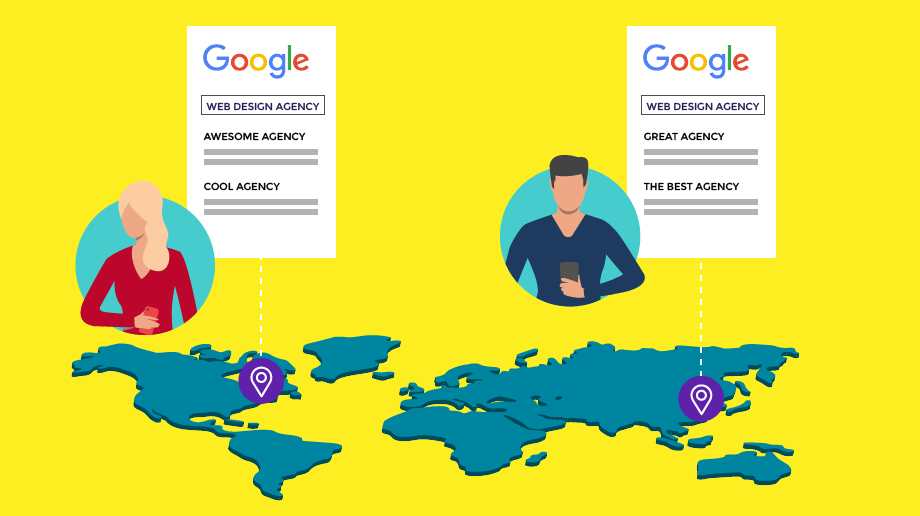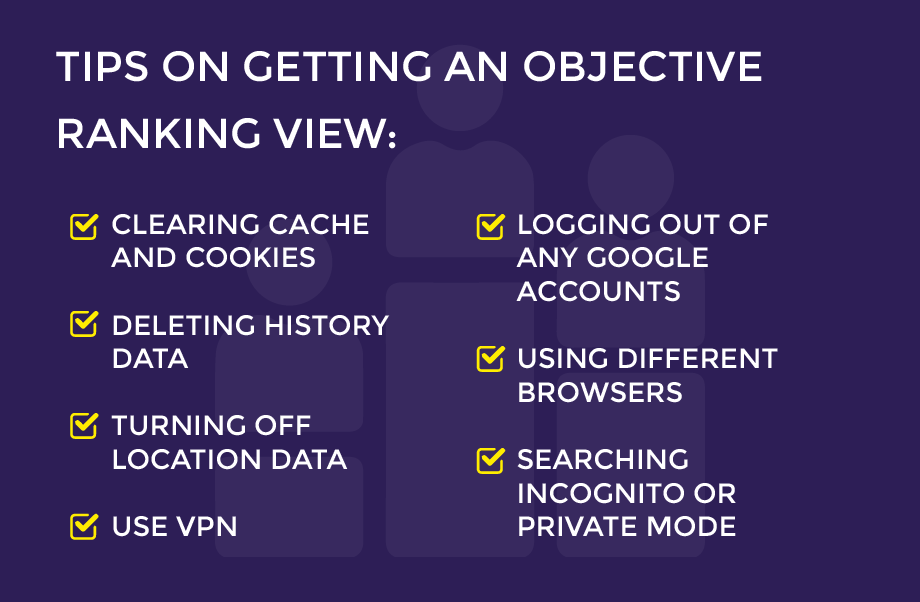In today’s digital era, it can still be a puzzling issue, the different results that Google returns for each and every individual.
It’s only natural to assume that search results will differ for someone searching for something in Cyprus than someone in the UK, but search results can also vary for individuals that are sitting next to each other too.
From an SEO perspective, all the hours spent on SEO strategies for your website may feel like a disappointment when you see that search results on Google do not appear the same for every individual user.
Google’s objective is to deliver the most relevant and accurate results for all its users and this means that the results will vary on an international scale. Users are constantly using search engines and these are simultaneously becoming increasingly sophisticated and intuitive to provide even more accurate results back to its users.
There are multiple reasons why this happens and in this article, we will consider a few of them.
Geographic Location
In recent years, Google depends heavily on location services. An individual’s search results will normally reflect the location settings on the device they are using.
If you search for something specific like “Website Agency”, the result on Google.com will most likely differ from the results on Google.co.uk. The user’s results should be within your local town and so they will generally see maps and addresses of local businesses that offer Website Agency related services. This information is usually found on the right-side column of the search results. It’s evident that a user searching for Website Agency in a different country will see results for their local area.

Google detects the geographical location by checking the domain name and IP address of the user’s device and provides customized yet relevant results. The location of the user is a very significant element that helps Google predict the result you want to see in a search engine.
Personalized Search
Search engine results are personalised to an individual’s previous searches. This is if the search history data and cookies have not been deleted by the user or if Google has retained the data for 18 months, who then delete the history data after this time.
If an individual is signed in to Google, then personalized searches improve. If users are frequently accessing certain sites when searching, Google will improve user experience by learning their habits or frequently used keywords, and prioritizing these sites when delivering future results. The search engine will refine these individuals’ searches based on previous behaviour.

Personalization gets better with a Google+ account. A user’s connections preference may also be taken into account, meaning if one of their connections like a particular company, then that company may appear higher in their results page.
It’s clear that the Google search engine wants to personalize results found from searches and give users access to a wider range of information on the internet.
SEO experts realize that this increases the complex situation of getting a site to rank higher on search engines.
Google’s Algorithm
Google’s algorithms are frequently updated – hundreds of times per year – to keep up with user’s searches and changes happening on the web. Google Panda is one popular update, where mobile rankings were altered to add a responsive feature. This update was developed to affect how websites perform on mobile devices. Responsive websites are also affected in Google rankings, and this will vary from device to device.
Due to the frequent Google updates, the search engine version changes also, and this too may affect what two different individuals see on the results page when searching for the same thing. One user may use a slightly older version of Google than the other.
Taking into consideration the SEO perspective, it’s suggested that users are aware that Google rankings will always vary between individuals.
Google AdWords
Evidently, Google places ads on search engine result pages (SERPs) from its AdWords PPC service. These usually appear at the very top of result pages and in other cases, they appear on the right side or bottom of the page.
These ads will most likely change the appearance of the results a user will see, especially if updates have been implemented on Google or depending on your location.
If your business is ranked at the top position in the search result page for a keyword phrase on your mobile device, it may likely be different on another device or desktop because the number and position of ads will change.
Conclusion
The above factors are but a few reasons why search results may vary for each individual, but how is it possible to know where your website is ranked for a specific keyword phrase?
If you choose to proceed alone, then a few simple ways to get an objective view of where your website stands in the rankings is by:
- Clearing cache and cookies
- Deleting history data
- Turning off location data
- Logging out of any Google accounts
- Using different browsers (Chrome, Safari, Internet Explorer, Opera or Iron)
- Searching with Incognito mode or Private mode
- Use VPN

If you choose to get professional help, which is recommended, and avoid any inconveniences in the future, then your local web agency can assist you in this department but also advise you on how to get the best results on each device across all platforms and browsers.
Published on October 17, 2019



